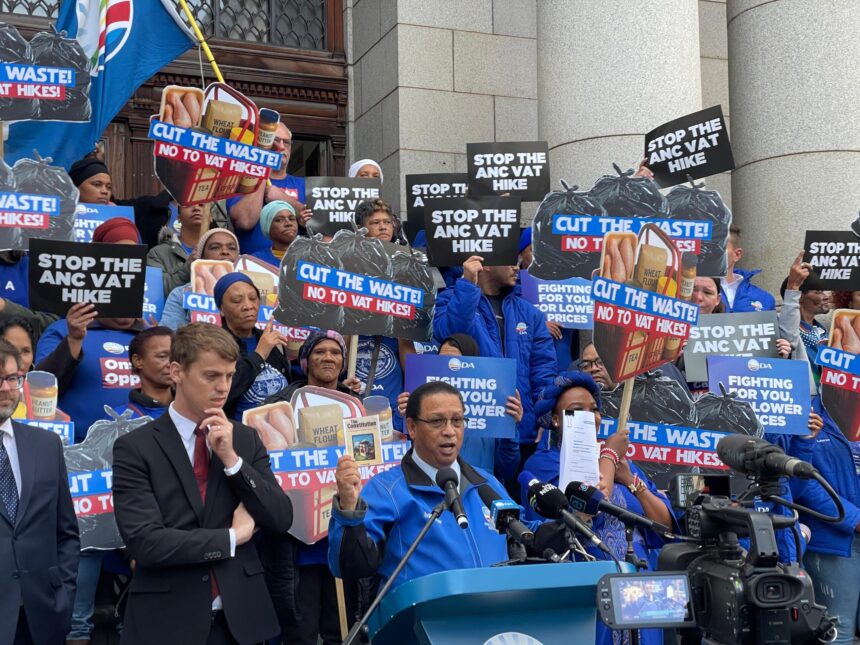The Democratic Alliance (DA) has recently claimed credit for the reversal of a proposed VAT increase by the treasury. According to the DA, their legal team presented a strong case against the flawed parliamentary process used to adopt the fiscal framework.
The African National Congress (ANC) has welcomed the treasury’s decision to scrap the VAT increase, although they admitted that the budget vote could have been handled differently. ANC secretary general Fikile Mbalula stated that their main concern was to protect the expenditure side of the budget and find alternative solutions to sustain the post-austerity cycle reflected in the budget.
The treasury announced that they would not be implementing the planned one percentage point VAT increase over two years, opting instead to keep the rate at 15%. This decision would result in an estimated R75 billion shortfall, and additional revenue measures by the South African Revenue Service (Sars) may be considered to fill the gap.
Various political parties that supported the passing of the fiscal framework on 2 April issued a joint statement hailing the VAT reversal as a triumph of collective action. The DA, however, claimed credit for the reversal, citing their legal challenge against the flawed parliamentary process.
The Economic Freedom Fighters (EFF) joined the DA in the court challenge and called for the resignation of Finance Minister Enoch Godongwana, accusing the government of adopting the fiscal framework “illegally through deceit and lies.”
At a multiparty media briefing, political leaders from different parties expressed their views on the budget reversal. Some praised the flexibility of the budget as a living document that can adapt to changing circumstances, while others criticized the handling of the VAT issue by certain MPs.
Overall, the decision to reverse the proposed VAT increase has sparked debate and discussion among political parties in South Africa. The treasury’s role in managing the budget and the powers of the finance minister under the VAT Act have also been questioned. As the situation continues to unfold, it is clear that the issue of taxation and public spending remains a key concern for all parties involved.







